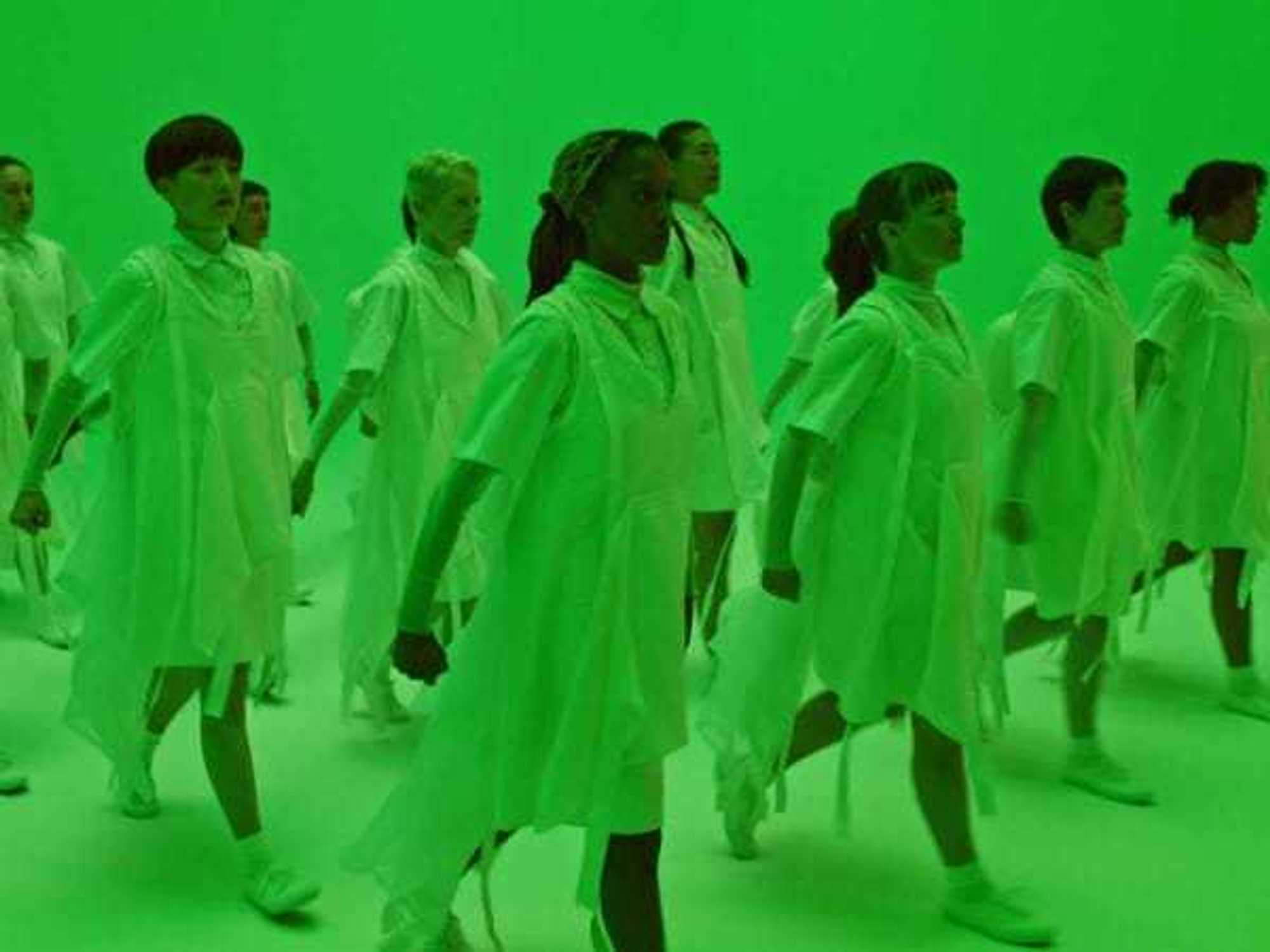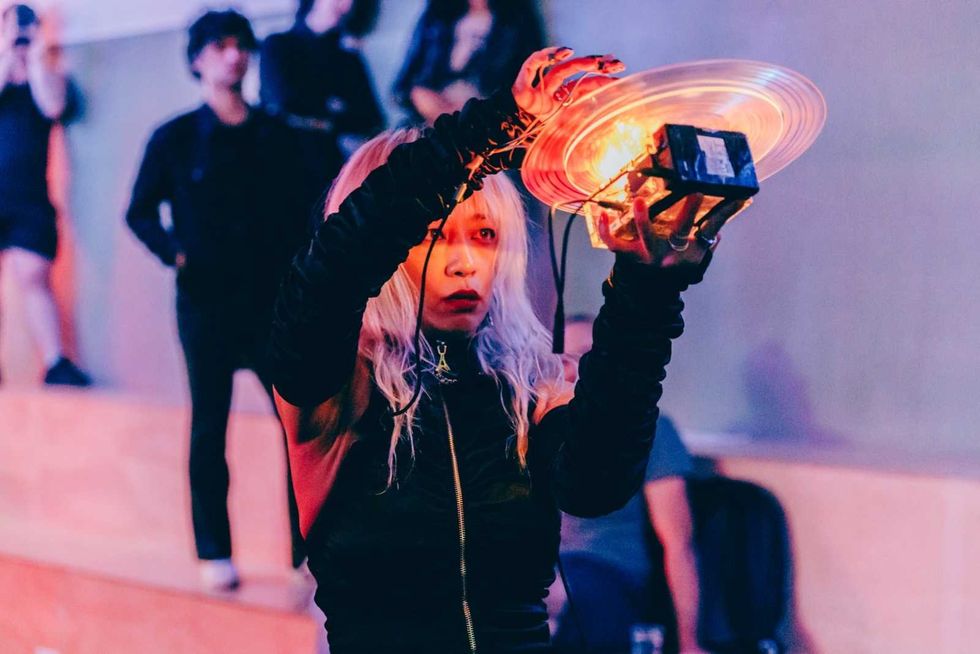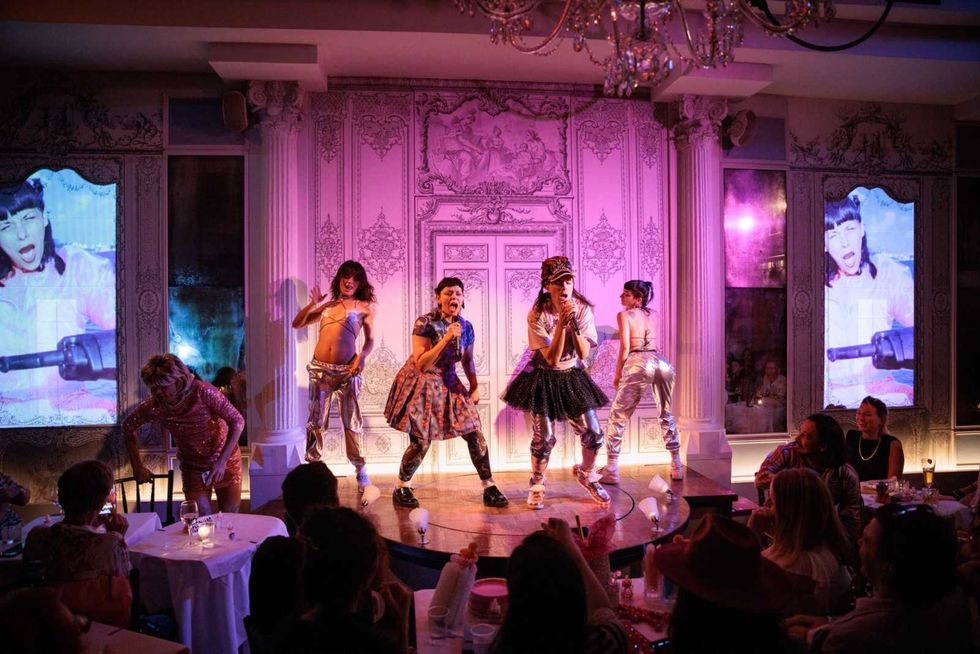interactive advice
This youth theater is Changing Lives: Advice crafted for and by teens, onstageat a school near you
Early on a recent Saturday morning, eight students from the Changing Lives Youth Theater Ensemble performed at the We Are Girls conference in an Austin High classroom packed with middle school girls. One by one, the actors stepped into the spotlight to introduce their characters.
"Just because I'm a slut doesn't mean I don't deserve respect."
"Just because I'm into academics doesn't mean I don't know how to have fun." The honest, frank language is characteristic of a Changing Lives show.
A joint program of Theatre Action Project and Safe Place, CLYTE is a theatre arts program comprised of paid 14-18 year old actors who tour to middle schools and community events in Central Texas, presenting original plays focused on teen social issues like bullying and relationship violence.
Changing Lives has been addressing these topics since 2003, but recent attention to them have made CLYTE's work particularly salient. The growing number of school fight videos on YouTube—not to mention the widely-reported recent suicides of gay teens—evidence that school bullying has escalated from rite of passage to life-threatening for many adolescents. Add in a recent study that revealed the pervasive sexual harassment of 7th-12th grade students, and it's clear that students today struggle with issues many adults don't have the tools to address.
A number of initiatives and media campaigns to draw attention to the detrimental effects of bullying have sprung up in recent years, but most focus only on the bully and the target, turning primarily to adults to stop the harassment. Changing Lives, however, employs a unique model that uses theater to teach kids strategies for interrupting destructive patterns.
The ensemble spends a semester conceiving of and writing a play with the help of TAP and Safe Place program directors, Nitra Gutierrez and Susie Gidseg. Beginning with image-based games and exercises from Theatre of the Oppressed, the ensemble often shows a problem and then a moment of intervention where that problem can either be solved or exacerbated. For their current production, the players discussed labels and stereotypes that get attached to various students—be it clown, outsider, loud kid, nerd or slut—and used them to explore the real situations students face at school each day. In the spring, CLYTE will tour the production to area middle schools where it will be followed by a talk-back examining the problems presented in the show.
At their recent performance, Gutierrez and Gidseg sprang to action, asking audience members to identify problems in the relationships portrayed onstage. After exploring solutions to a moment where two characters picked on a third, Gutierrez directed attention to another scene. "Where else might we see bullying going on up here?" The students focused laser-like on the other side of the stage: one character had called another a slut. "Did anyone know that calling someone that sort of name is sexual harrassment?" They didn't. Gutierrez followed up, "Why are we so hard on girls?" It's that sort of information combined with critical analysis that CLYTE gives to students, encouraging them to imagine alternative solutions to common middle school social problems.
And it's no mistake that Changing Lives is using theater to discuss harassment with middle schoolers, either. "Drama looks just like people walking and talking and living their lives," Gutierrez explains. "It's an effective way to interrogate those themes that we see in the real world. This sense of 'rehearsing reality' gives you something to chew on later. And that's our biggest hope—that kids are talking to each other about the shows after we leave."
Student feedback about the plays stresses how real the themes and characters feel. This relatability comes from a writing process that often digs into the artists' own middle and high school experiences and observations. But Changing Lives isn't looking solely to put relatable incidents on stage. The idea is to show how those common events can be changed by both participants and observers. "Bystanders could out-power bullies in immeasurable ways, if only we all realized the power that we have," Gutierrez suggests. "If we start creating a mentality among young people that, ‘Hey, we are all watching this and allowing it to happen, we hold some responsibility in this situation and we do have a role to play,’ I think it could change dramatically."
----
Both Theatre Action Project and SafePlace are non-profits that fund the Changing Lives Youth Ensemble, among several other programs. If you'd like to get involved, TAP accepts both volunteers and donations.


 Austin artists Mark Flood and Evcksun will bring their interdisciplinary collaboration to the Fusebox Festival in April. Photo courtesy Fusebox Festival
Austin artists Mark Flood and Evcksun will bring their interdisciplinary collaboration to the Fusebox Festival in April. Photo courtesy Fusebox Festival Novelitas de Ninas are a feminist musical soap opera performance appearing at the Fusebox Festival.Photo by Walter Wlodarczyk
Novelitas de Ninas are a feminist musical soap opera performance appearing at the Fusebox Festival.Photo by Walter Wlodarczyk